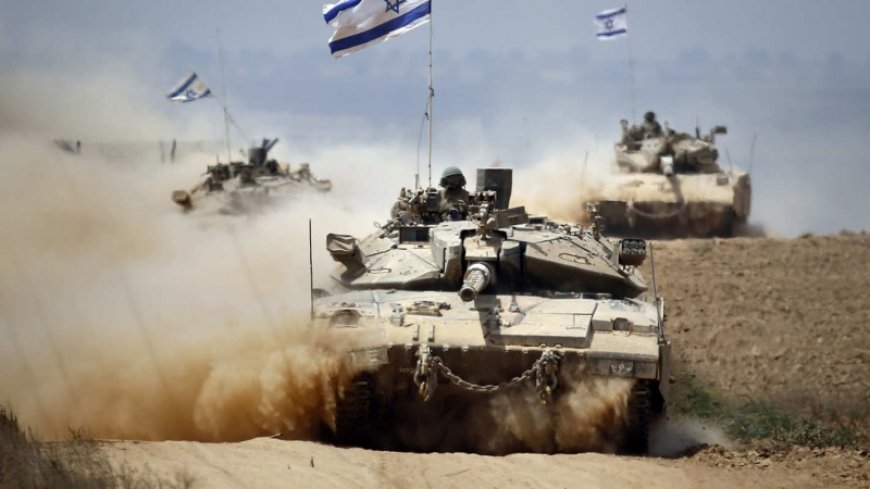Israel’s Escalation in Syria and the West’s Silence: A Troubling Double Standard
Recent events in Syria present a bleak picture of growing hostility and geopolitical scheming, with Western countries seeming complicit either silently or overtly. Reportedly advancing to within 20 kilometers of Damascus, Israeli tanks have hit over 300 targets across Syria, including vital military facilities. These acts not only aggravate the misery of the Syrians but also expose a concerning hypocrisy in the reaction of the international community to invasions of sovereignty.

Recent events in Syria present a bleak picture of growing hostility and geopolitical scheming, with Western countries seeming complicit either silently or overtly. Reportedly advancing to within 20 kilometers of Damascus, Israeli tanks have hit over 300 targets across Syria, including vital military facilities. These acts not only aggravate the misery of the Syrians but also expose a concerning hypocrisy in the reaction of the international community to invasions of sovereignty.
Reports from regional sites claim that Israeli forces have conducted protracted bombing operations over provinces including Damascus, Homs, Hama, and Raqqa. These strikes seek to methodically destroy the residual capacity of the Syrian army, therefore casting doubt on Syria's long-term security and territorial integrity. Regardless of who takes over in Syria, Israeli officials have freely said their aim is to remove any military hardware that might find "undesirable" hands. Such comments expose an aim that transcends mere defensive tactics and approaches blatant interventionism.
The reaction of the West to these events—or lack thereof—deserves examination. Although the United States and its allies have been outspoken about sovereignty and human rights in disputes involving other governments, its posture on Israeli aggression in Syria has been subdued. Recently acknowledging America's involvement in attempts to undermine the Assad administration, Jake Sullivan, the U.S. National Security Adviser, underlined a more general approach to change the political environment of the Middle East in line with Western goals. This acknowledgement lines up with accounts of American involvement with armed organizations meant to destabilize Syria even more.
Such activities reveal a double standard in Western foreign policy. Imagine the indignation and quick condemnation that would follow if another country conducted hundreds of airstrikes in a nearby state or advanced tanks within striking proximity of its capital. When Israel does these things, however, they are either tacitly approved or completely ignored. This silence not only fuels more aggression but also undermines the moral power of Western nations claiming to support world law and human rights.
Strict friend of the Syrian government, Iran has also come under fire. After an attack on its diplomatic facilities in Syria, Iranian officials to the United Nations demanded clear UN Security Council condemnation as well as actions to guarantee diplomatic mission safety. The absence of a robust worldwide reaction to such events emphasizes even more the selective indignation defining much modern geopolitics.
Furthermore demanding action are Arab voices. Speaking for the Arab Parliament, Mohammed Ahmed Al-Yamahi encouraged the whole community to confront Israeli aggression and assist in Syrian security and stability restoration. But in a world shaped by Western narratives, such calls are sometimes muffled.
The situation in Syria exposes a disturbing trend: selective application of international law, whereby violations are either tolerated or denied depending on geopolitical convenience rather than principle. Along with a worsening catastrophe in Syria, the outcome is an international order progressively shaped by cynicism and inconsistency.
If the West is committed to maintaining the values it so often advocates—sovereignty, human rights, and the rule of law—it has to deal with its own involvement in supporting aggression. Silence in front of such behavior is complicity rather than neutrality. The credibility of the international community as a defender of peace and justice will continue to deteriorate without a balanced and moral approach, therefore leaving a void empty of conflict and hopelessness.













































